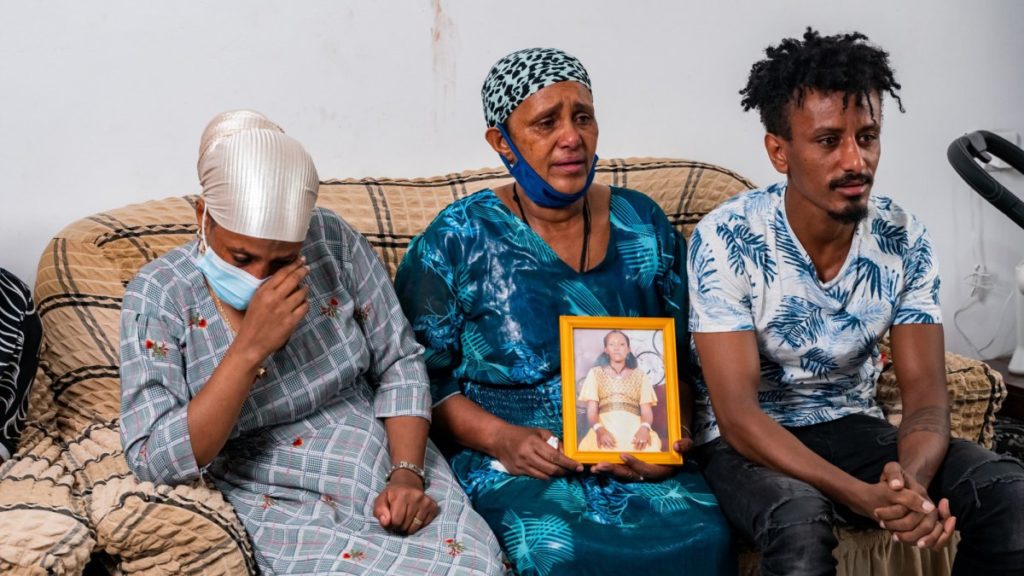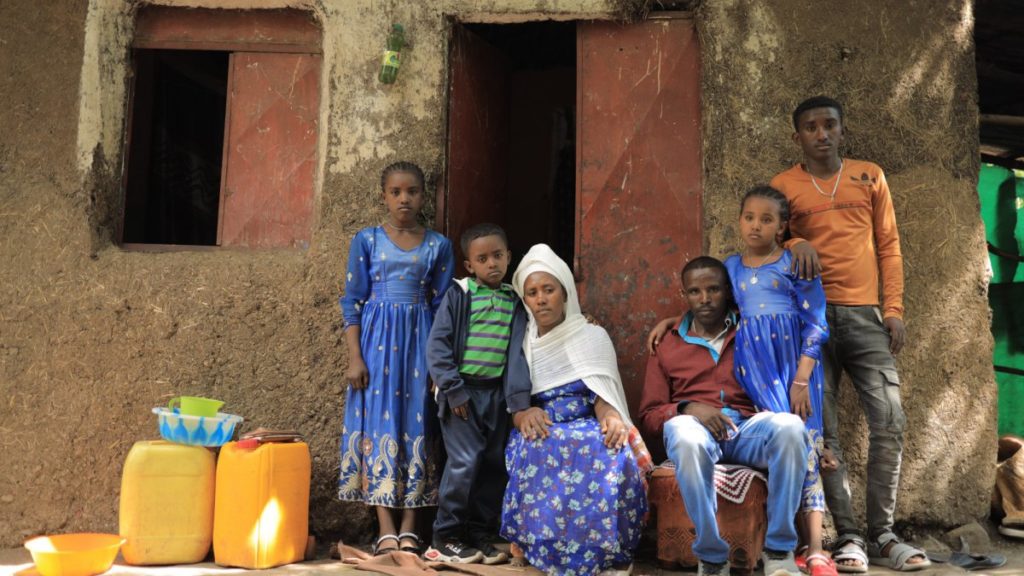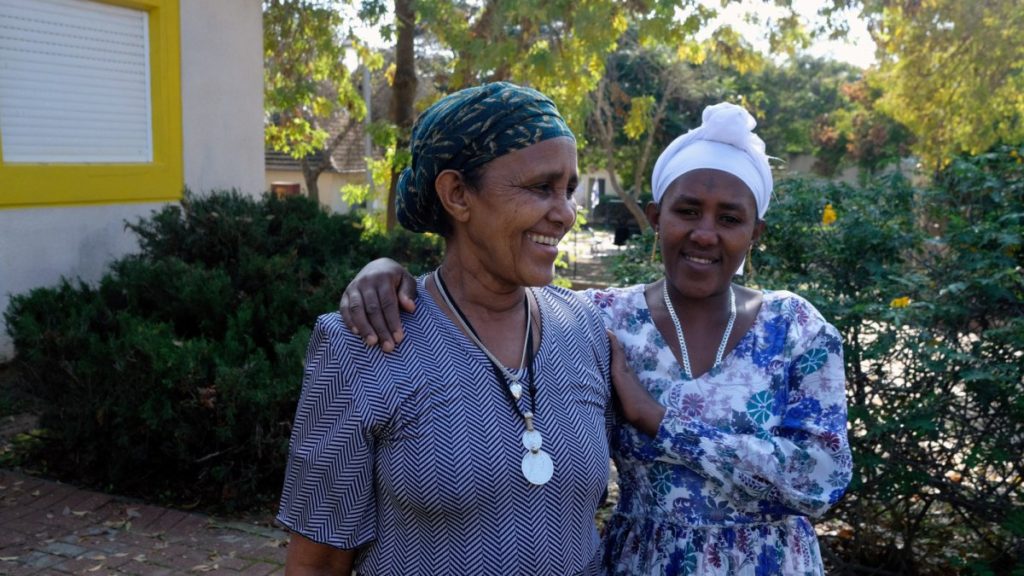
An Ethiopian Jewish Family ‘Embraces’ After 20 Years
Published on: 9.3.2021By: Ester Heinzmann, ICEJ-Germany
In December 2020, Israel launched “Operation Rock of Israel” to bring back 2,000 of the approximately 7,500 Jews remaining in Ethiopia who are eligible for Aliyah. Most of them have been waiting for up to two decades in abject poverty to be reunited with their families in Israel. The ongoing uncertainty about their future and separation from their loved ones have taken a toll. This includes the family of Yaliganesh Addis, who lives with her husband and four children in a transit camp in Gondar.

It has been 20 years since Yaliganesh last saw her mother Nana. Back then, Nana and her three sons left their village of Gojam, moved to Gondar, and applied for permission to immigrate to Israel. Nana’s other four children, including Yaliganesh, remained in Gojam, with some preparing for marriage. After waiting nine years in Gondar, Nana finally received permission to make Aliyah. “We were so happy”, her son Kafale remembers.
But then they received bad news: only the mother and three sons were allowed to immigrate to Israel. “They told us: ‘You go now, and once you’re in Israel, the others will follow’”, Kafale remembers.
Today, he and his family live in Petah Tikvah. In the years that followed, three more siblings were able to make Aliyah, but not so with Yaliganesh.
“I cried so much when they left for Israel and today, ten years later, I am still crying”, she says. “I couldn’t even say goodbye to them.”

Her family also suffers from the separation. “My mother is totally devastated”, says Kafale. “For 20 years she has been separated from her daughter. She’s never seen her four grandchildren.”
Left behind
As a young man, Kafale tried to help Yaliganesh make it to Israel. Again and again he was told: “Don’t worry. Your sister will come eventually.” After his military service in the IDF paratroopers, Kafale traveled to Gondar, where he was shaken by the conditions his sister faced in the transit camps.
He found Yaliganesh living in a small mud hut, with no electricity or running water – like most Jews in Gondar. Meals are cooked on an open fire. Neighbors share one communal toilet. Jewish families are charged far too much for rent, especially if they have children. For years, Yaliganesh stored away her few belongings in suitcases – always ready for her journey to Israel.
Jews in Gondar also have a hard time finding work, as employers do not know how long they will be around. So they live from the little money their families in Israel send them. The Jewish Agency tries to ease the suffering and provides medical care. There is also a food program for pregnant women and malnourished children under five, which the ICEJ helps finance.
Home at last
Last November, Yaliganesh finally received permission to make Aliyah. “I will be so happy to see my family again. It feels like a dream,” she smiled.

Her family in Israel also was excited. “At last, the time has come. After 20 years of tears, we can embrace her and let out all this longing”, said a relieved Kafale.
What is the first thing Yaliganesh will do when she finally reaches Israel? “I will embrace my family and thank God.”
In late December 2020, Yaliganesh and her family finally arrived in Israel. After the mandatory 14 days of quarantine, she was finally able to hug her mother Nana and her siblings!
Nearly 1,600 Ethiopian Jews have already come to Israel over recent months in “Operation Rock of Israel”. The ICEJ has been able to sponsor flights for over 500 of them. Please help us bring more Ethiopian Jews home to Israel!